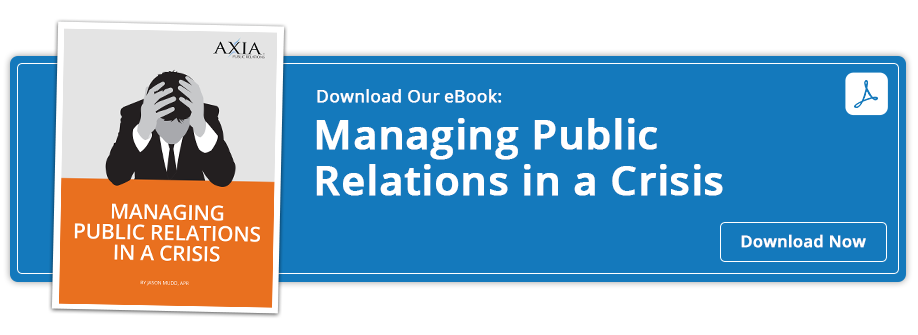Three tips to crisis response when customers have been offended
By Virginia Marion BullardJune 15, 2020
 Customer service is hard. Dealing with conflict and complaints is even harder. For many companies, this can be a make-it-or-break-it point. If you have poor relationships with customers and clients, it can even permanently tarnish a company’s reputation. To avoid that and strengthen customer relations along the way, here are three tips for responding to a crisis response when customers have been offended.
Customer service is hard. Dealing with conflict and complaints is even harder. For many companies, this can be a make-it-or-break-it point. If you have poor relationships with customers and clients, it can even permanently tarnish a company’s reputation. To avoid that and strengthen customer relations along the way, here are three tips for responding to a crisis response when customers have been offended.
1. Recognize the situation
Imagine you pick up dinner from your favorite restaurant to-go but once you make your long drive home, you open the bag to find out it’s the wrong food. You drive all the way back to the restaurant to inform them they have given you the wrong food and you’re greeted with “Maybe you should have checked it before you left.” All you really wanted was an apology and the correct order (or as a last resort, yes, the refund). But now you’ve been brushed off and offended.
No one likes being ignored. Simply by acknowledging the situation (and genuinely listening to what the customer has to say), you take one huge step toward mending the relationship and getting the opportunity to prove to the customer that you’re worth it. The quicker you respond to them, the better. However, don’t rush your response either, or you’ll put yourself at risk of using a harsh tone or promising something you can’t deliver.
2. Control the situation
So you nailed your immediate reaction to being presented with less-than-ideal feedback. That’s great. But if you don’t actually DO something about the crisis, then none of it really matters!
The first step in controlling the situation is to take action quickly. A quick response is important, but quick action is imperative. You may even find that your customers are willing to wait for a solution a bit longer as long as they know you are working on it.
It’s important to note that this stage isn’t only based on what you’re doing for the customer, but how you’re doing it for the customer. Remain polite and always remember that the customer is the one having the problem, never that the customer is currently your problem. Use “we” rather than “you” because right now, no matter who might be at fault, you and your customer are working together as a team to find a solution to a problem.
3. Recover from the situation
Recovery begins as soon as you recognize the situation. The moment the customer contacts you with a problem, it’s on. First and foremost, thank them for coming to you with the issue. This is something overlooked by many, and it is too vital to leave out. Not only does it show that you’re serious about solving the issue for them and other customers, but it also clears the air and takes a lot of inherent hostility out of the situation. As soon as you’ve done this, begin your recovery stage and groundwork for finding a solution.
Offer support throughout the customer’s journey. If you’re at fault, apologize. Immediately work on rebuilding the relationship at this pivotal point for the customer. Be on their team, and it will keep them on yours.
Once the initial communication has ended, always remember to follow up with the customer to ensure, at a minimum, that their problem has found some sort of a solution but ideally, that they are happy again.
A crisis is stressful, but it doesn’t have to be. Rather than view it as you or your company being put in the hot seat, view it as you being given the opportunity to really go above and beyond to show the customer how much they mean to you. The most important thing through the event is to keep calm and default to empathetic. How companies handle themselves amid a crisis can not only save a customer relationship, but it can also earn you new business — and you would never be in the situation to be given such a unique chance had the complaint never been issued.
 Virginia Marion Bullard is an intern with Axia Public Relations and a senior at the University of Florida College of Journalism. Virginia is based out of Jacksonville, Florida and has a passion for crafting blogs and short stories for everyone to enjoy.
Virginia Marion Bullard is an intern with Axia Public Relations and a senior at the University of Florida College of Journalism. Virginia is based out of Jacksonville, Florida and has a passion for crafting blogs and short stories for everyone to enjoy.
Stock photo credit: (https://www.pexels.com/photo/silver-iphone-6-987585/)
Topics: crisis communications



Comment on This Article